Lives and passions brought into the light
Black History Month offers the chance to celebrate the rich cultural heritage, history, and achievements of black people. This year’s theme is Standing Firm in Power and Pride. Lucy Popescu selects 12 recently published books that explore black history, diverse experiences and voices and pay tribute to the resilience, strength and unwavering commitment to progress that defines the black community worldwide
Friday, 3rd October 2025 — By Lucy Popescu
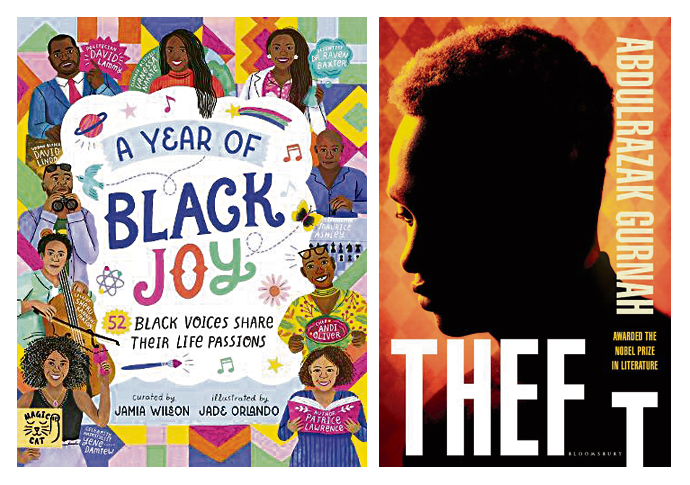
• A Year of Black Joy: 52 Black Voices Share Their Life Passions (Magic Cat Publishing) curated by Jamia Wilson and illustrated by Jade Orlando is an anthology of uplifting contributions from 52 contemporary black voices including chef Andi Oliver, author Patrice Lawrence, space scientist Dr Maggie Aderin-Pocock and climate activist Vanessa Nakate. A donation to BLAM UK will be made for every copy sold. BLAM UK is committed to ensuring that the Black British community is recognised, represented and appreciated.
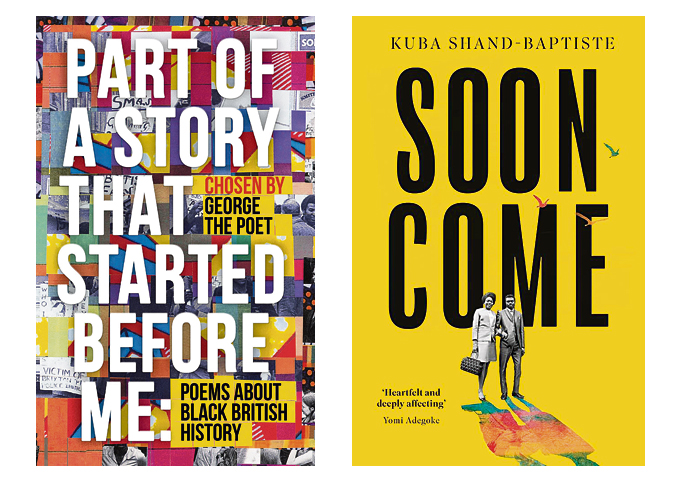
• Abdulrazak Gurnah’s Theft (Bloomsbury), the latest novel from the 2021 Nobel Prize winner, follows the rites of passage of three young people in postcolonial East Africa. Growing up in 1990s Zanzibar, Karim, Fauzia and Badar dream of great possibilities in their young nation. But for Badar, an uneducated servant boy who has never known his parents, all doors appear closed. Brought into a lowly position in a great house in Dar es Salaam, Badar finds the first true home of his life and the friendship of Karim, the young man of the house. Even when a false accusation sees Badar sent away, Karim and Fauzia refuse to turn away from their friend.
• Part of a Story That Started Before Me: Poems about Black British History edited by George the Poet (Penguin) is a thought-provoking collection of poems by established and new wordsmiths from across the diaspora, exploring people and moments from Black British history. Using poetry to link us to the past and the future, the anthology contains contributions from Ashley Hickson-Lovence, Benjamin Zephaniah, Bridget Minamore, Cara Thompson, Derek Walcott, Dorothea Smartt, Evan the poet, Grace Nichols, Inua Ellams, Irenosen Okojie, Joseph Coelho, Nii Ayikwei Parkes, Olaudah Equiano, Olivette Otele & Stretch the Top Boy, Raymond Antrobus, and Reece Williams.
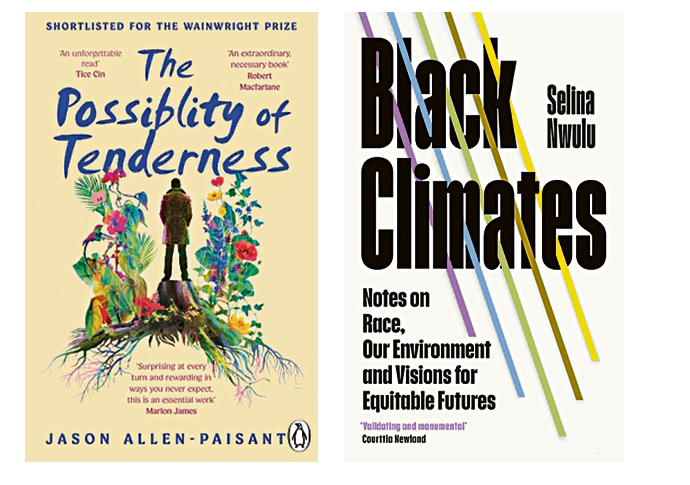
• Kuba Shand Baptiste’s debut novel Soon Come (Dialogue Books) explores migration, friendship and the defiance of London’s Caribbean community over several decades. Judith came to Britain believing that hard work and respectability would keep her safe. Now a nurse, she keeps her head down and sends money home. Mikey is unafraid to speak truth to power – whether through protest or paint. Frank’s just trying to find joy wherever he can, even if everything is falling apart. Their worlds collide in a small Caribbean restaurant in north-west London, where the smell of Scotch bonnet drifts out the windows and life-altering decisions are made between shifts and shared meals.
• Jason Allen-Paisant’s The Possibility of Tenderness (Hutchinson Heinemann) is a personal history narrated through the lens of the “grung” and plants. It’s also a people’s history of the land, a family saga, an archival detective story through time. It’s the migration tale of a young scholar who arrives in Britain from rural Jamaica to study at Oxford to achieve “upward social mobility” and who now lives in Roundhay, Leeds. Suddenly, amidst his journey of dreams and class aspiration, the plants and people of his native district, Coffee Grove, begin to offer different ways of living and the permission to roam England.
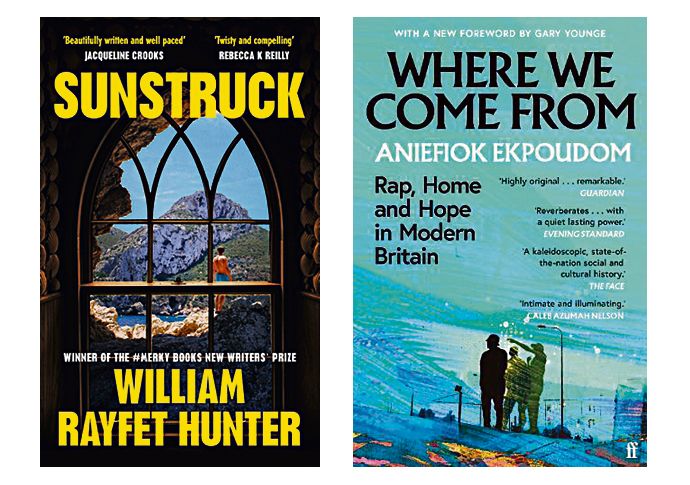
• Globally, black people are among the most affected by the climate crisis, despite contributing very little to it. In Black Climates (Chatto & Windus) Selina Nwulu argues that the root of climate change lies in historical colonial violence and ongoing exploitation, making it inherently racist. Nwulu, former Young People’s Laureate for London, addresses Black British readers who have been previously ignored in mainstream environmental conversations. She includes interviews with various creatives and campaigners to explore a range of subjects, including air pollution, prison ecology, disability justice, migration, food, nature, community care, and radical imagination.
• William Rayfet Hunter’s Sunstruck (Merky) explores race, status and the parts of ourselves we risk losing when we fall in love. It’s summer and a young man walks through the gates of a luxurious mansion in the South of France. At the dinner table, the Blake siblings await him: Lily, his carefree friend from university; Dot, the rebellious younger sister; and Felix – handsome, charismatic and guarded. Between sun-drenched days by the pool and nights blurring into endless parties, the man is captivated by Felix’s restless allure. But when they return to London, the cracks in the Blakes’ careful façade begin to show, and their bond is tested.
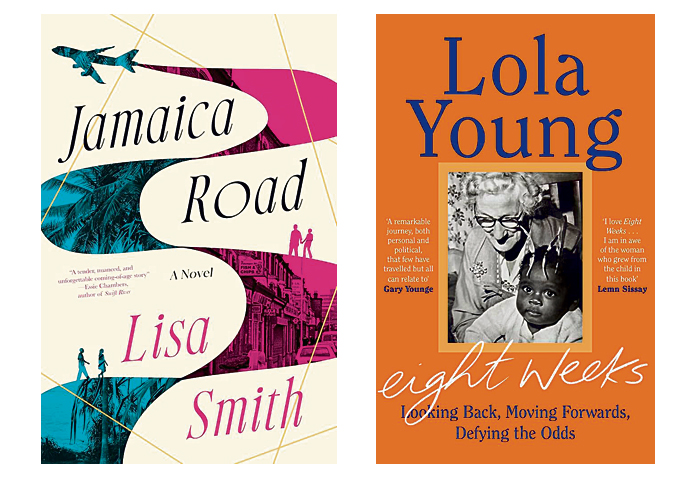
• Where We Come From: Rap, Home and Hope in Modern Britain (Faber) journalist Aniefiok Ekpoudom travels the country to document the dawn, boom and subsequent blossoming of UK rap and grime. Taking us from the heart of south London to the West Midlands and South Wales, he explores how a history of migration and an enduring spirit of resistance have shaped the current realities of these linked communities and the music they produce. These sounds have become vessels for the marginalised, carrying black and working-class stories into the light. Ekpoudom weaves together intimate stories of resilience, courage and loss, as well as a shared music culture that gave refuge and purpose to those in search of belonging.
• Lisa Smith’s debut novel Jamaica Road (Dialogue Books) is about race and class, the family you’re born with and the limits of love. South London, 1981: Daphne is the only black girl in her class. All she wants is to keep her head down, preferably in a book. The easiest way to survive is to go unnoticed. Daphne’s attempts at invisibility are upended when Connie Small, outgoing, and unapologetically himself, arrives from Jamaica. As they navigate growing up in a rapidly changing city, their families become close, and their friendship begins to shift into something more complicated. But when Connie reveals that he is “nuh land” – meaning he’s in England illegally – long-buried secrets in both families threaten to tear them apart.
• Baroness Lola Young has been an actress, an academic, an activist and campaigner for social justice, and a crossbench peer. But from the age of eight weeks to 18 years, she was moved between foster care placements and children’s homes in north London. It would take many decades before she discovered answers to the long-standing questions that would help make sense of her past. In Eight Weeks: Looking Back, Moving Forwards, Defying the Odds (Penguin), she offers a portrait of a childhood in a system that often made her feel invisible and unwanted. Alongside glimpses into her life as a peer, activist and campaigner, it tells the powerful story of her determination to defy the odds.
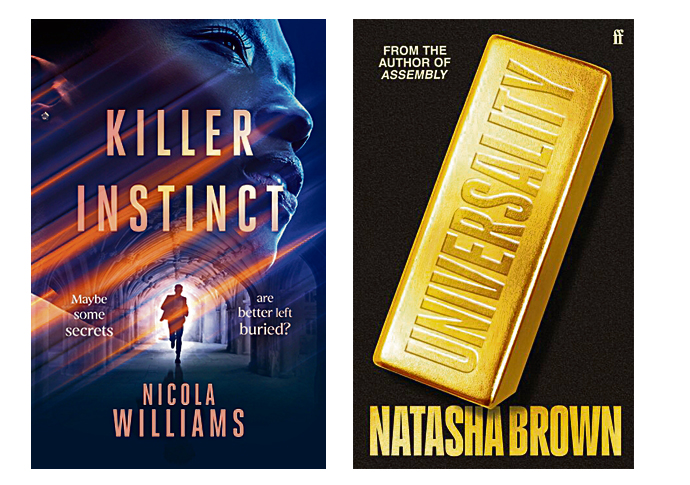
• Killer Instinct (Hamish Hamilton), the latest novel by Nicola Williams, a Crown Court judge and former criminal barrister, explores racial and class prejudice within our legal system. Black British barrister Lee Mitchell doesn’t know who she can trust, when the Head Clerk at her Chambers is murdered. One of the last people to see him alive, the crime is pinned on Junior Clerk Dean – working class and still living on the estate where he grew up, he has the most to gain from Tom’s death. But Lee knows how easily prejudices can snowball into convictions – and steps in to defend him.
• Longlisted for the Booker Prize, Universality by Natasha Brown (Faber) is a twisty, slippery descent into the rhetoric of truth and power. Through a voyeuristic lens, it focuses on words: what we say, how we say it, and what we really mean. On a Yorkshire farm, a man is brutally bludgeoned with a solid gold bar. A plucky young journalist sets out to uncover the truth surrounding the attack, connecting the dots between an amoral banker landlord, an iconoclastic columnist, and a radical anarchist movement. She solves the mystery, but her exposé raises more questions than it answers.